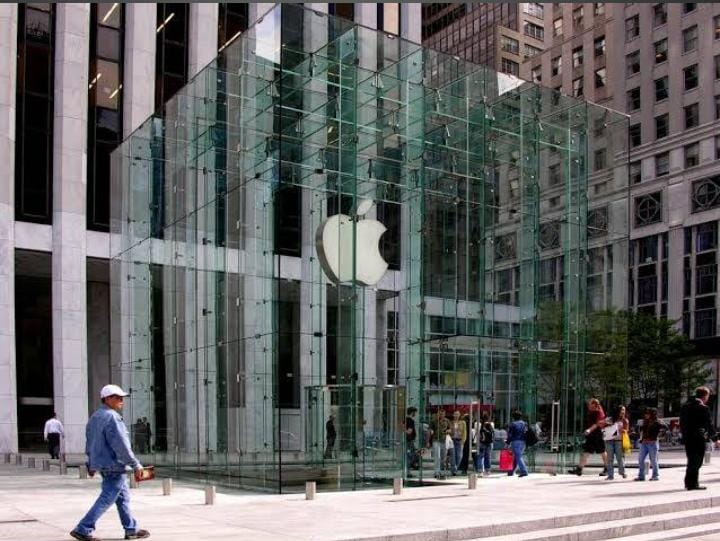
Maharashtra Records First Suspected Death Due to Guillain-Barré Syndrome Amid Surge in Cases
Date: 27th January 2025
In a worrying public health development, Maharashtra has reported its first suspected death due to Guillain-Barré Syndrome (GBS), as a sharp rise in the number of cases has been recorded in the state, particularly in the Pune region. The news has raised alarms among both health professionals and the public, prompting immediate medical and public health responses. This rise in cases has also brought renewed focus on the rare but serious nature of GBS, a neurological disorder that can lead to paralysis and, in extreme cases, death.
What is Guillain-Barré Syndrome (GBS)?
Guillain-Barré Syndrome is a rare autoimmune disorder that causes the body’s immune system to attack the peripheral nervous system, which controls the muscles and sensation. It typically starts with weakness and tingling in the legs and can progress to muscle weakness or paralysis, affecting motor functions. In its most severe form, GBS can interfere with the ability to breathe, requiring the patient to be placed on a ventilator.
The exact cause of GBS remains unclear, but it is often linked to an infection, such as a viral infection (e.g., influenza, COVID-19, or Zika virus) or bacterial infections (like Campylobacter). Vaccines have also been associated with triggering GBS, but these instances remain rare. Delayed diagnosis or inadequate medical care can lead to long-term effects or even death, making early intervention critical.
The First Suspected Death in Maharashtra: A Wake-up Call
Maharashtra’s first suspected death due to Guillain-Barré Syndrome was reported in Pune, one of the state’s largest cities. The individual, who had recently recovered from a viral infection, began experiencing progressive weakness and numbness in their legs, which quickly escalated into paralysis. Despite receiving prompt medical care, the patient’s condition deteriorated rapidly. The final diagnosis pointed to GBS, and the individual eventually succumbed to complications associated with the condition.
This death has been classified as a suspected GBS fatality, as tests and autopsy results are still pending. However, doctors have raised concerns about the increasing number of cases that show similar symptoms and clinical patterns, making it likely that this case will be linked to the ongoing GBS surge.
Rise in GBS Cases in Pune: A Region on High Alert
In the wake of this suspected fatality, Pune has seen a sharp increase in GBS cases, with local hospitals reporting an uptick in admissions for neurological disorders. The surge has put a strain on the region’s medical infrastructure, with hospitals scrambling to provide specialized care to patients suffering from GBS. Pune’s healthcare workers have been working tirelessly to diagnose and treat the condition, but the sheer volume of cases has raised concerns about the potential for a public health crisis.
According to health officials, Pune has seen a 60% increase in GBS cases compared to previous years, which has resulted in doctors intensifying their focus on early detection and treatment protocols. Local health authorities have issued advisories warning the public to be vigilant for the signs of the syndrome, particularly following viral illnesses.
Signs and Symptoms of GBS
GBS typically begins with weakness or tingling in the lower extremities, which progresses rapidly over days to weeks. The symptoms often appear after a viral infection, such as fever, sore throat, or gastrointestinal distress. As the condition worsens, patients can experience:
- Loss of muscle strength and difficulty in walking
- Difficulty breathing or swallowing
- Painful tingling or numbness in the arms, legs, or face
- Paralysis that can spread to other parts of the body
- In severe cases, respiratory failure and cardiac complications can occur, necessitating life support.
If these symptoms are recognized early, treatment such as plasmapheresis (plasma exchange) or IV immunoglobulin therapy can significantly improve the chances of a full recovery. Physical therapy is also essential for rehabilitation after recovery from acute symptoms.
The Medical Response and Urgent Measures
In response to the rising number of GBS cases, Maharashtra’s Health Department has activated a rapid response to manage the outbreak. This includes:
- Increased Surveillance: Local hospitals are being equipped with additional resources to monitor suspected cases and provide timely treatment. Additionally, health professionals are being trained to recognize early signs of GBS and prioritize early intervention.
- Public Awareness Campaigns: Maharashtra is running public health campaigns aimed at informing people about the early symptoms of GBS and urging those who experience weakness, tingling, or other unusual neurological symptoms to seek medical care immediately.
- Diagnostic Support: Doctors in Pune have called for improved diagnostic testing for patients showing signs of neurological deficits, emphasizing the need for timely interventions to prevent life-threatening complications.
Dietary Advisory: Avoid Paneer, Cheese, and Rice
In addition to medical treatments, there have been growing concerns over dietary factors that may affect the progression of GBS. Dr. Manish Patel, a leading neurologist in Pune, has issued specific dietary guidelines for those at risk of developing GBS or recovering from the syndrome.
According to Dr. Patel, certain foods should be avoided as they could exacerbate inflammation, which is a central feature of GBS. These foods include:
- Paneer and cheese (rich in saturated fats): These can increase inflammation and strain the immune system.
- Rice (high in starch): Foods that cause spikes in blood sugar levels can hinder the body’s ability to recover from the inflammatory responses seen in GBS.
Instead, patients should consume a balanced diet with an emphasis on vegetables, lean proteins like chicken or fish, and whole grains. Fruits rich in vitamin C, zinc, and antioxidants can help strengthen the immune system and speed up recovery. The importance of hydration cannot be overstated, particularly for individuals recovering from GBS.
The Road Ahead: What Can Be Done?
As Maharashtra and Pune battle this rise in GBS cases, the situation calls for heightened vigilance, both from the public and health authorities. Early detection of symptoms is crucial to ensuring that patients receive the right care and avoid the worst outcomes.
The Maharashtra Health Department has committed to:
- Strengthening hospital infrastructure to handle the increasing cases of GBS.
- Running awareness programs aimed at educating people on recognizing GBS symptoms early and seeking help.
- Continuing to monitor and report the rise in cases to implement preventive measures.
In the coming weeks, experts will continue to track the trends and work on better understanding the causes behind this outbreak to prevent future surges. As for those affected, prompt medical intervention, good nutritional practices, and physical therapy will be key to recovery.
Conclusion: Addressing the Growing Threat of Guillain-Barré Syndrome
As the surge in GBS cases in Maharashtra and the suspected death highlight the seriousness of this condition, public awareness and early medical intervention will be vital in limiting its spread. Authorities in Pune and across the state are working hard to ensure that adequate resources and information are available to those at risk. With careful attention, GBS can be managed, and the likelihood of severe complications minimized.
As more is understood about the GBS outbreak, it’s critical that the public adheres to health guidelines and watches for symptoms, particularly after viral illnesses. The coming weeks will be crucial in determining the trajectory of this outbreak and how it is contained.



